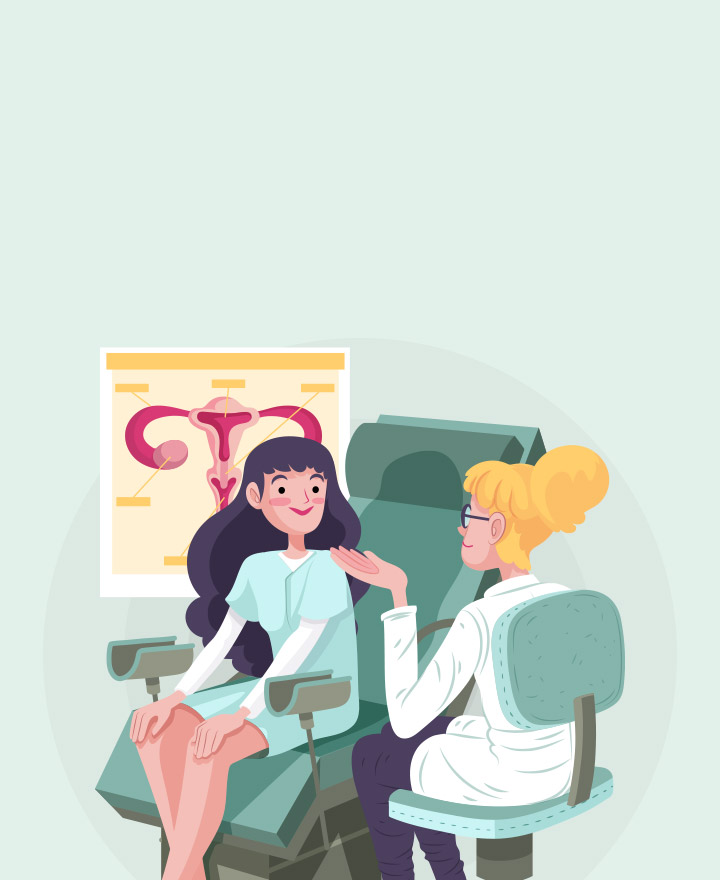

What is Stillbirth? Signs & Causes
Foetal death that happens after 20 weeks of pregnancy is termed as stillbirth; if it occurs before 20 weeks, it is a miscarriage. In stillbirth cases, the baby may pass away weeks before delivery, during labour, or shortly after delivery. Although most of the time, the causes of stillbirth are unknown, it can occur due to genetic conditions or issues with the placenta or umbilical cord. Sometimes, foetal complications also lead to stillbirth. Read on to know more.
Types of stillbirths
The three forms are categorised depending on what stage a stillbirth occurs. These are the following:
• Early stillbirth
Occurs between weeks 20 and 27.
• Late stillbirth
Occurs between 28 and 36 weeks of gestation.
• Term stillbirth
Occurs when a pregnancy is 37 weeks or longer.
Are stillbirths common?
The rate of stillbirths varies greatly per region of the world. In developing nations, there are up to 22 stillbirths for every 1,000 live births. This rate of stillbirth is lesser in developed countries. According to reports, the US has 6 cases of stillbirths in every 1000 births. One thing that you need to remember is that improved prenatal care can help in reducing the rates of stillbirths.
Risk factors of stillbirth
A stillbirth during pregnancy occurs due to various risk factors, such as:
.• Being too heavy or fat
• If the pregnant lady is over 35 years of age or a teenager
• Having stress before delivery
• Elevated blood pressure during pregnancy
• Diabetes
• Carrying multiples
• Having become pregnant via the use of assisted reproductive technologies, including IVF (in vitro fertilisation)
Causes of Stillbirth
There are several known causes of stillbirth that one should be aware of. Some of these are listed below.
• Labour and pregnancy complications
These include premature labour and carrying multiples (i.e., twins, triplets, or more). Placental abruption (the removal of the placenta from the womb) can also cause this pregnancy issue. According to studies, stillbirths occurring before 24 weeks were more frequently caused by these issues. Pregnancy complications most likely cause one in three stillbirths.
• Issues with the placenta
This issue mainly happens because of insufficient blood supply. According to studies, these fatalities usually occur after 24 weeks of pregnancy.
• Congenital disabilities
Out of all stillborn foetuses, 1 in 5 cases happen because of genetic or structural birth abnormality.
• Issues associated with the umbilical cord
One such instance is when the umbilical cord becomes coiled or compressed, depriving the growing foetus of oxygen, which leads to a stillbirth. This usually happens closer to the end stage of the pregnancy.
• Preeclampsia
Long-term hypertension and preeclampsia, which occur during pregnancy, can lead to a stillbirth. Compared to other phases of pregnancy, the end of the second and beginning of the third trimester are the times when stillbirths associated with these factors occur most frequently.
• Substance abuse
Smoking, drinking alcohol, or consuming recreational drugs can lead to stillbirths.
Signs of Stillbirth
When you no longer feel your baby kick, it could be the first sign indicating something may be wrong. This does not, however, imply that a stillbirth will occur. Since each baby is unique, no set amount of movement is normal. Later in your pregnancy, medical professionals may advise you to monitor foetal kick counts at least once a day. Foetal monitoring or ultrasounds performed during the pregnancy help to ensure the safety of the unborn baby, particularly if you have previously experienced a stillbirth.
Knowing whether the baby's heart is pumping can help you understand that the foetus is normal. Using an ultrasound is a reliable method of determining whether a stillbirth has occurred before delivery. In many cases, pregnant women experience cramps and vaginal bleeding, which can indicate a severe complication. Well, these signs don't always mean stillbirth. So, you should first consult your doctor.
Conclusion
Stillbirths can be extremely painful and difficult to deal with for pregnant women. This could be more difficult at times because the causes of stillbirth might not be evident even after a thorough study. Hypertension, pregnancy complications, and substance abuse could be a reason for this issue. If this loss has happened, getting medical assistance and support will be helpful.
One of the important components of our overall wellness is also being financially secured. Healthcare emergencies can happen any time, but a good health insurance policy can protect you from such uncertain situations. To know more about Wellness and other health related tips, visit the Wellness Corner.
Source: nhs.uk, tommys, pregnancybirthbaby
Disclaimer: This blog provides general information and discussions about health and related subjects. The information and other content provided in this blog, website or in any linked materials are not intended and should not be considered, or used as a substitute for, medical advice, diagnosis or treatment. Kindly contact your Doctor before starting a new medicine or health regime.
Related Articles
Foods Linked to Miscarriage - What to Avoid
Tips to Reduce the Risk of Birth Defects
Essential Precaution Tips To Be Taken During Pregnancy
How to Prevent Infections During and Before Pregnancy
Dos And Don'ts During the First Trimester
Published on March 08, 2024














 Health Insurance
Health Insurance  Travel Insurance
Travel Insurance  Car Insurance
Car Insurance  Cyber Insurance
Cyber Insurance  Critical Illness Insurance
Critical Illness Insurance
 Pet Insurance
Pet Insurance
 Bike/Two Wheeler Insurance
Bike/Two Wheeler Insurance  Home Insurance
Home Insurance  Third Party Vehicle Ins.
Third Party Vehicle Ins.  Tractor Insurance
Tractor Insurance  Goods Carrying Vehicle Ins.
Goods Carrying Vehicle Ins.  Passenger Carrying Vehicle Ins.
Passenger Carrying Vehicle Ins.  Compulsory Personal Accident Insurance
Compulsory Personal Accident Insurance  Travel Insurance
Travel Insurance  Rural
Rural